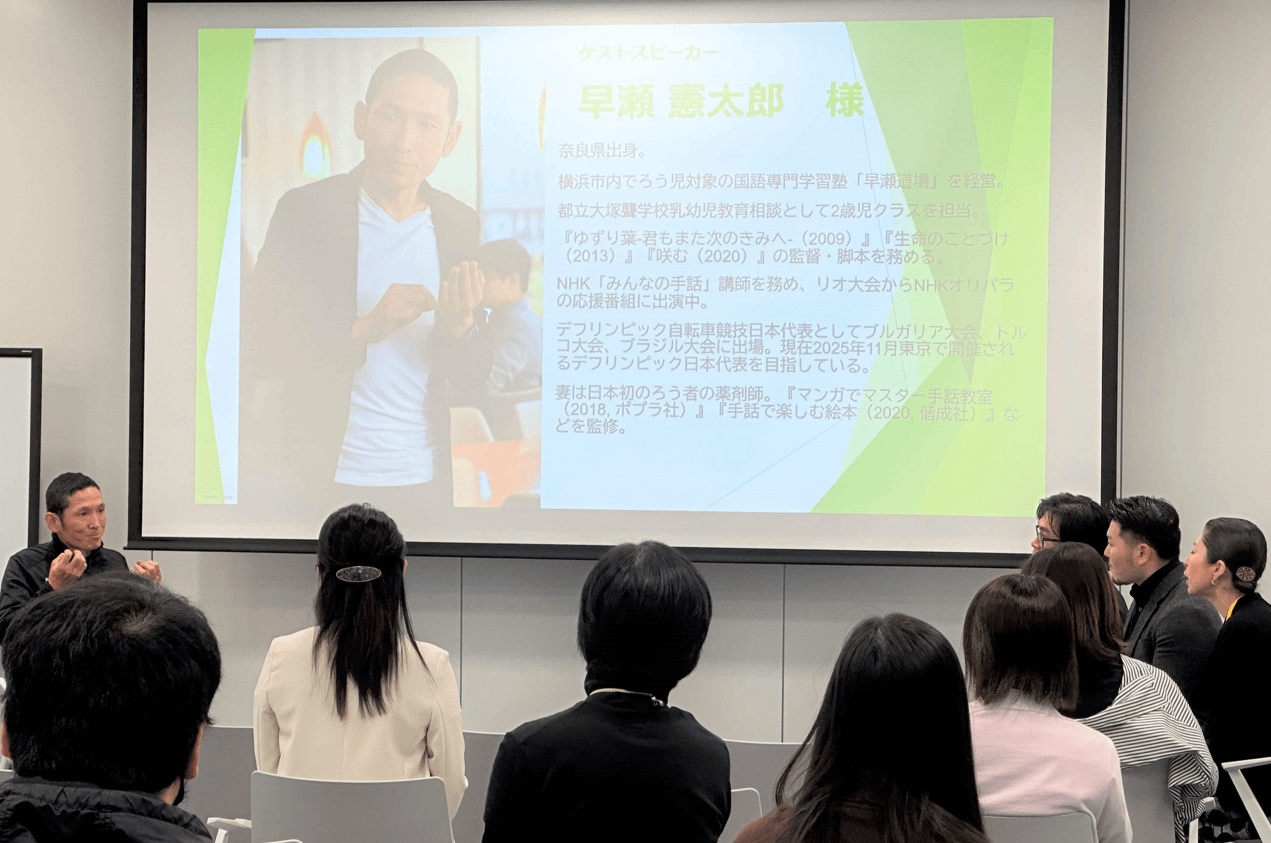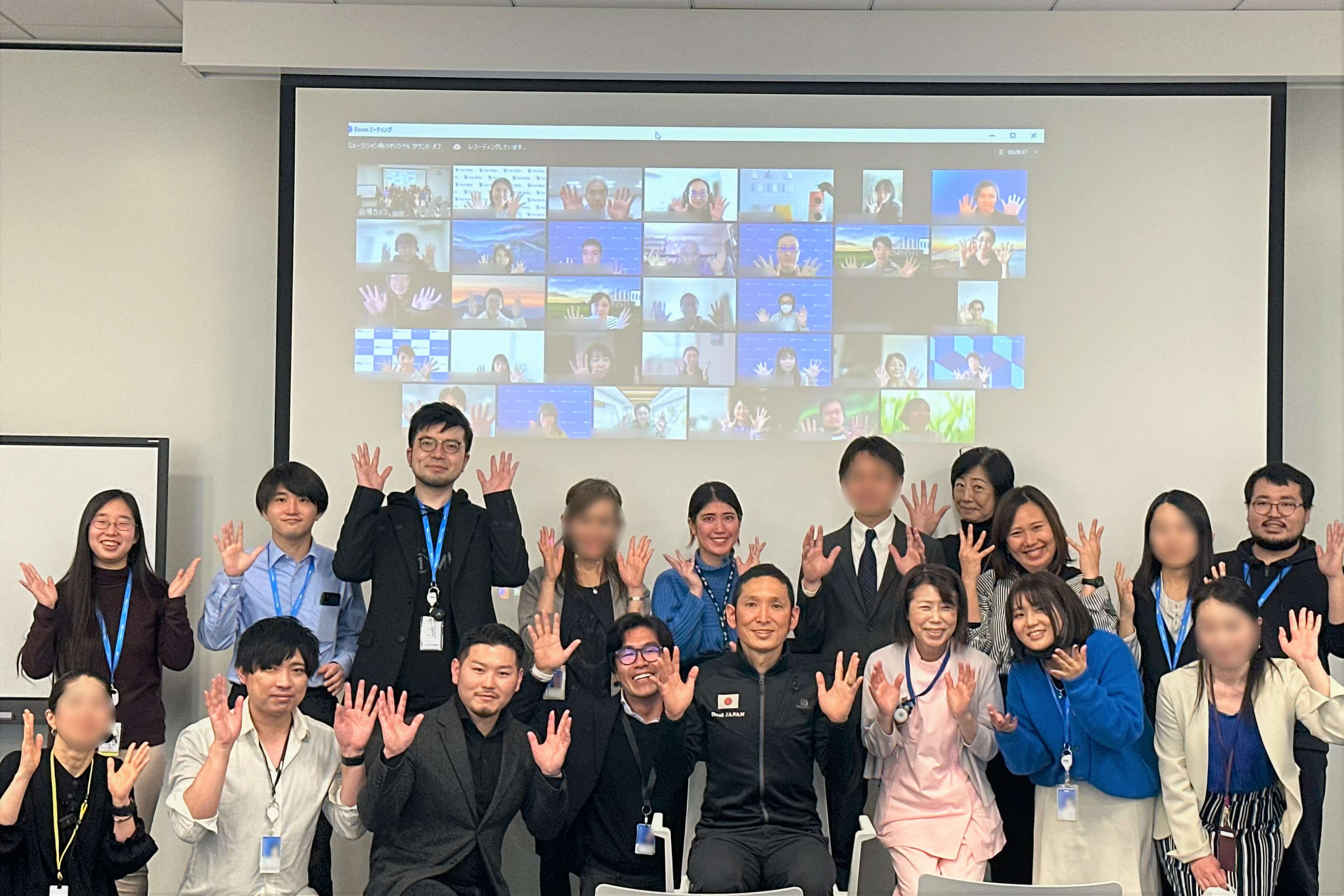Dell Technologies Japan ERG Event Report: "Knowing the Soundless World" by True Ability and Mosaic
Unleash your power to make a difference. Join an ERG and drive social change. Originally Published: May 16, 2023
Tokyo, Japan ERGs True Ability and Mosaic held a joint event called Knowing the Soundless World where they invited an external guest speaker, Kentaro Hayase, a man who was born deaf, to speak to Dell employees. Kentaro has an impressive background competing in the 2017 Deaflympics and still riding for the Japan Deaf Cycling Association. He even is a sign language teacher on a TV program and a film director!
While it’s common to learn about the needs of disabled people and to support them in overcoming their challenges in school, these views come from the perspective of able-bodied individuals rather than people with disabilities themselves. Additionally, the term 'disability' is not always self-referential and may be learned only after being applied by others outside of the disabled community. Mr. Hayase explained, “I struggled because how I saw myself and others saw me didn't match at all.” We tend to label people for the sake of easy understanding. However, labeling can sometimes cause suffering. In elementary school, his teacher asked him to represent the feelings of deaf people to his class and share his obstacles on behalf of the deaf community and other people with disabilities. He was confused. He didn’t see himself as a representative of the disabled community, nor did he identify as disabled. “Regarding my situation, I do not experience emotions like sadness or regret. This is who I am. I identify as a deaf person. I'm proud of my deafness." We sometimes categorize people based on not only disability but also nationality, gender, or generation and view them through this lens. However, to be inclusive, it’s essential to face people as they are, without filters, and to interact with them. Mr. Hayase asked the attendees if we had an identity. Most of the Japanese people in attendance did not recognize their own identity unless they moved to other countries and interacted with people of different nationalities and backgrounds. He pointed out that this lack of self-awareness can lead to suffering and worsened understanding of each other. Whether or not someone has a disability, having a strong sense of identity and self-respect is essential for everyone. Then, he shared his hopes of people living together in cooperation regardless of whether they are able-bodied or not. "We can only be equals when we understand each other." That's why he takes on multiple roles from athlete to teacher. He says that the more he collaborates with diverse people, the more understanding they are of his deafness.
After the event, participants sent positive feedback:
Mr. Hayase provided us with an opportunity to reflect on our own identities and attitudes and examine the society we live in. Even if this opportunity is not directly related to our current job or business, it allows us to recognize, learn, and reflect on ourselves, which can lead to small changes in our way of living and our society. Dell Technologies will continue to collaborate with various organizations worldwide to contribute to society and foster a culture of diversity and inclusion.
To learn more about ERGs and life at Dell, please visit Employee Resource Groups and our stories. |
||||||||
Be The First To See New Opportunities
Join Our Talent Network
Sign up, stay connected and get opportunities that match your skills sent right to your inbox.



